Veteran Recruiting: Putting Real Life Heroes to Work
There are currently 21.8 million U.S. veterans. Unknown to many, they account for a large portion...

The Veterans Employee Resource Group (VERG) is a dynamic and influential community within our organization, dedicated to championing initiatives that enhance the role of veterans in our corporate journey. Today, we invite you to explore VERG and discover the impactful projects and initiatives we tirelessly pursue to honor and assist those who have served our nation. Our commitment extends beyond our employee base as we encourage everyone to join us in this noble cause.
Before we delve into the heart of our Veterans ERG, let me provide some of my background. I have worked for Yoh Strategic Accounts for ten years and currently serve as a Relationship Manager. As a Relationship Manager, I have the opportunity to work with multiple clients and manage an amazingly talented team.
I have been involved with VERG for two years now, driven by my family connections to veterans. My brother served and retired from the Air Force as a Master Sergeant and is currently working with the government in a civilian capacity. My grandfather proudly served in the Army, and my daughter is married to a Marine. These connections have given me insight into military families' sacrifices and challenges, fueling my passion for supporting veterans and their loved ones.
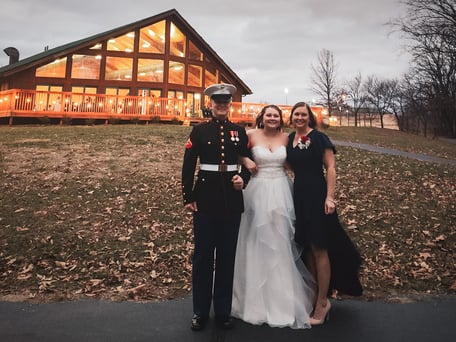 Angela with her daughter and son-in-law on their wedding day
Angela with her daughter and son-in-law on their wedding day
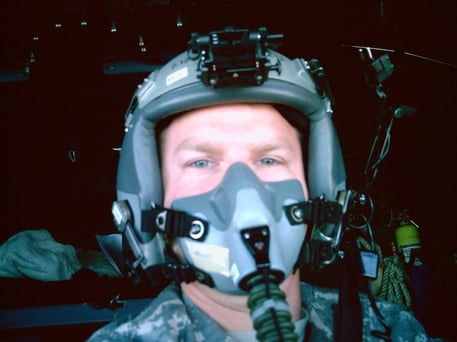 Angela's brother serving in the Air Force
Angela's brother serving in the Air Force
VERG is a dedicated community within our company that aims to drive initiatives and community involvement on behalf of the corporation to enhance the participation of veterans in our company's growth and success. One of the most remarkable aspects of VERG is that it is open to all employees; you don't have to be a veteran to join!
We currently have 70 dedicated members in VERG and continuously strive to increase our numbers. We hold quarterly meetings to discuss our ongoing projects and share ideas for future initiatives. It's a platform for open and meaningful discussions. These are some of our initiatives:
Navigator Program for Veterans: The Navigator Program is an enterprise-wide initiative that pairs an experienced employee with a new hire to foster community, offer mentorship, and provide valuable resources for the newcomer. VERG members take on a pivotal role within this program by partnering with newly hired veterans. This partnership is designed to assist veterans in their transition into civilian life by connecting them with individuals who share similar experiences.
In addition, we offer essential training and internship opportunities through our Skill Bridge program for those making the transition from military to civilian life, with a specific focus on opportunities within our organization. These initiatives are a testament to our commitment to ensuring veterans experience a seamless transition into the corporate world.
FourBlock: FourBlock is a 501(c)(3) non-profit organization dedicated to supporting service members in their transition from military service to meaningful civilian careers. In partnership with Launia Terry, Day & Zimmermann Vice President of Human Resources and Air Force Veteran, VERG members participate in virtual sessions to connect with veterans and transitioning military to attain the skills, resources, and relationship-building opportunities necessary to reach their career potential.
Holiday Cards for Our Deployed Employees: Our members spread some holiday cheer by sending hand-written holiday cards to our Day & Zimmermann employees deployed overseas and active-duty family members. Last year, we sent over 1,700 cards!
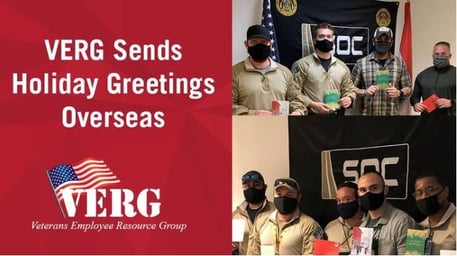 VERG Holiday Cards Initiative
VERG Holiday Cards Initiative
Family Support Group: Military families often face unique challenges, and our Family Support Group is here to provide a network of understanding and guidance. We're a diverse group of parents, siblings, aunts and uncles, and others who come together to offer comfort, share stories of triumphs and tears, and celebrate the accomplishments of our loved ones in uniform.
Wreaths Across America Campaign: We are honored to support the Wreaths Across America campaign each December. Across our enterprise, we sponsor wreath purchases, donating, and/or participating in wreath-laying ceremonies at Military National Cemeteries at more than 2,500 locations in all 50 U.S. states, at sea and abroad. This initiative ensures that the sacrifices of our veterans are remembered and honored during the holiday season.
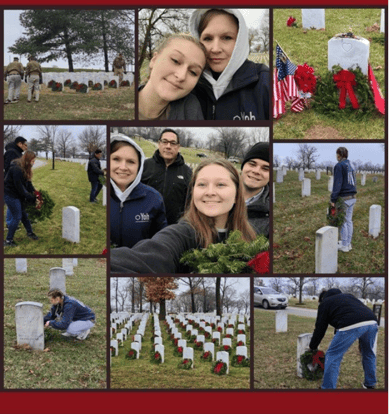
Angela and her family participating in Wreaths Across America
New VERG Media Club: We're proud to introduce our latest initiative, the VERG Media Club. This club fosters creativity and allows us to discuss compelling veteran and military movies. We raise awareness about our members' personal experiences and contributions in group discussions.
Veterans Appreciation in November: We express our gratitude and appreciation for veterans through various activities and events every November. It's a month dedicated to honoring those who have served and continue to serve our country.
Wear Red Fridays: Wear a red shirt every Friday to show your respect and support to our troops and veterans.
In closing, I want to emphasize that VERG is an inclusive group. It's not just for our employees but extends a warm welcome to our entire Day & Zimmermann network, which shares our commitment to supporting veterans. If you're reading this and considering joining us, we encourage you to do so!
There are many ways to support veterans throughout the year. Get involved in charities, make donations, participate in campaigns like Wreaths Across America, or seek out veteran organizations to invest in your local community. Together, we can make a meaningful difference in the lives of those who have sacrificed so much for our country.
Thank you for taking the time to learn about VERG and our mission. We look forward to welcoming you into our supportive and dedicated community!

There are currently 21.8 million U.S. veterans. Unknown to many, they account for a large portion...
August 17, 2016
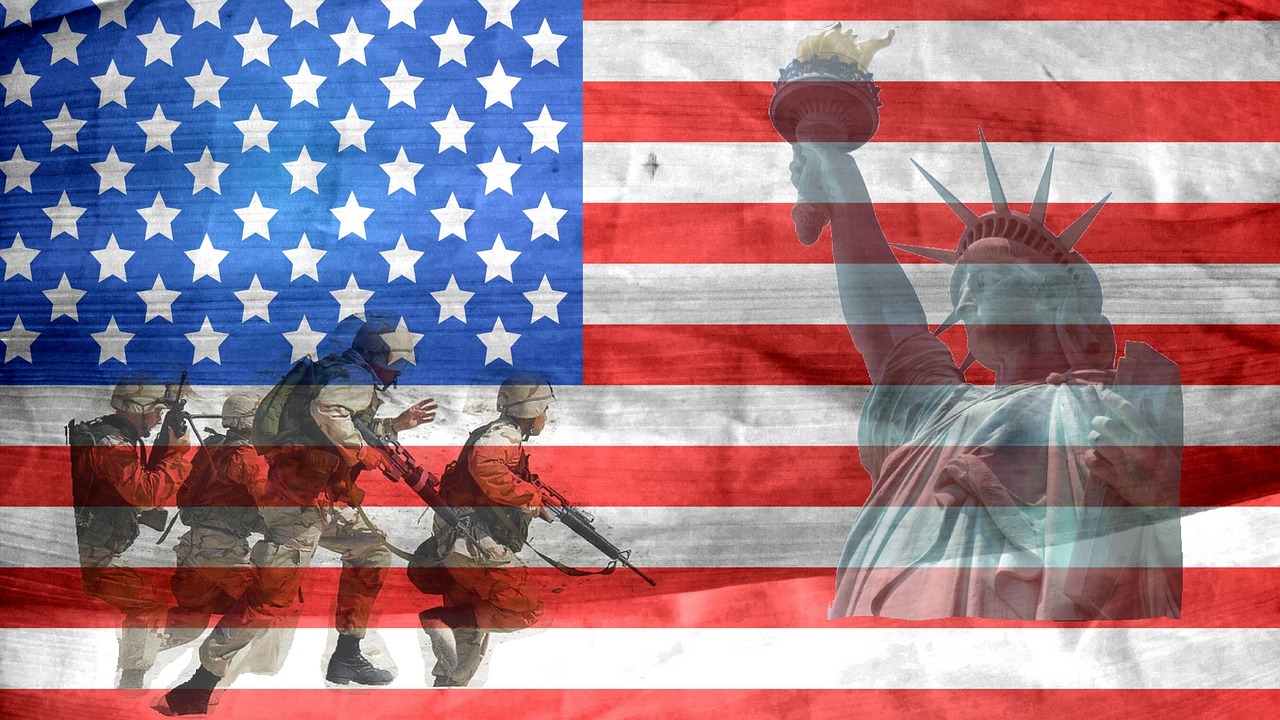
The men and women who serve in the armed forces willingly give up years of their lives and put...
May 13, 2020

A recent CareerBuilder survey revealed an interesting correlation between Veteran hiring versus...
November 10, 2016